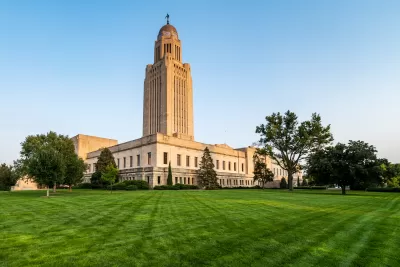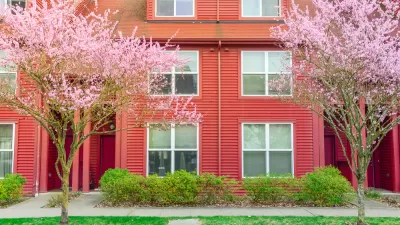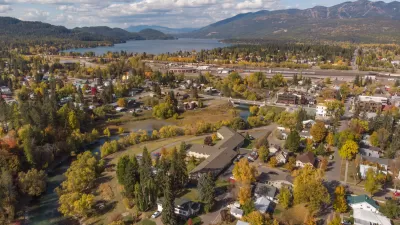The bills would require cities to adopt zoning regulations to allow duplexes and ADUs.

Nebraska lawmakers are considering state zoning for duplexes and accessory dwelling units as a solution for the state’s housing challenges, reports Unicameral Update, a daily news source produced by the state legislature’s information office. “On January 30, the legislature’s Urban Affairs Committee heard testimony on two measures intended to increase housing density in Nebraska cities,” the article states.
The proposed legislation would help address the need for an estimated 200,000 housing units to meet demand by ensuring local zoning regulations do not limit the types of housing that can be built, according to the bills’ sponsor, Nebraska State Sen. John Lowe.
Under LB1165, duplex housing would be allowed as a permitted use on a lot where a single-family residence is a permitted use in metropolitan, primary, and first class cities. It would also prohibit zoning regulations that apply to duplexes from being more restrictive than regulations that apply to single-family residences.
Under LB1166, municipalities would be required to adopt zoning regulations that allow at least one accessory dwelling unit on a lot or parcel that contains a single-family residence. It also stipulates that ADUs be allowed by right — meaning they can be approved without a public hearing or conditional use permit — and prohibits other actions like parking requirements, aesthetic requirements, or impact fees that could discourage the development of ADUs.
Representatives from developers, homebuilder associations, chambers of commerce, and AARP Nebraska testified in support of the bill. Opponents of the proposal said cities with populations of more than 20,000 are already working to address housing issues and that by preempting local control, the proposed state mandates would be both unworkable in some neighborhoods and disenfranchising.
Instead, Wayne Mortensen of NeighborWorks Lincoln proposed, “the state could create sample design and zoning guidelines that cities could adopt, allow cities to exempt certain neighborhoods from the proposed requirements or incentivize them to adopt zoning changes by tying them to state funding.”
Todd Stubbendieck of AARP Nebraska, a proponent of the bills, expressed concern in his testimony that “a piecemeal approach to housing zoning reform, specifically regarding ADUs, will simply take too long and leave too many communities behind.”
FULL STORY: State zoning for duplexes, accessory dwelling units proposed

Trump Administration Could Effectively End Housing Voucher Program
Federal officials are eyeing major cuts to the Section 8 program that helps millions of low-income households pay rent.

Planetizen Federal Action Tracker
A weekly monitor of how Trump’s orders and actions are impacting planners and planning in America.

Ken Jennings Launches Transit Web Series
The Jeopardy champ wants you to ride public transit.

California Invests Additional $5M in Electric School Buses
The state wants to electrify all of its school bus fleets by 2035.

Austin Launches $2M Homelessness Prevention Fund
A new grant program from the city’s Homeless Strategy Office will fund rental assistance and supportive services.

Alabama School Forestry Initiative Brings Trees to Schoolyards
Trees can improve physical and mental health for students and commnity members.
Urban Design for Planners 1: Software Tools
This six-course series explores essential urban design concepts using open source software and equips planners with the tools they need to participate fully in the urban design process.
Planning for Universal Design
Learn the tools for implementing Universal Design in planning regulations.
Ada County Highway District
Clanton & Associates, Inc.
Jessamine County Fiscal Court
Institute for Housing and Urban Development Studies (IHS)
City of Grandview
Harvard GSD Executive Education
Toledo-Lucas County Plan Commissions
Salt Lake City
NYU Wagner Graduate School of Public Service





























